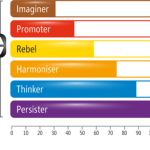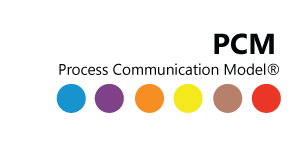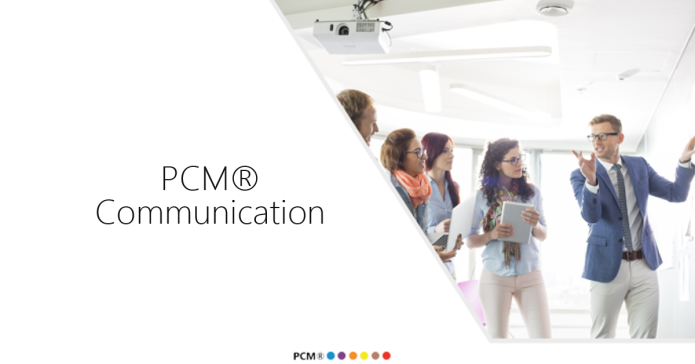 PCM Communication is a two-day program designed to help participants improve their communication skills with different personality types. The program is based on the PCM (Process Communication Model®) methodology that provides insight into the deep personality structure and an easy way to understand the dynamics of communication. PCM has been used for more than thirty years and experienced by almost a million people on five continents in such applications as sales, business, education, politics, religion, medicine, parenting and personal relationships.
PCM Communication is a two-day program designed to help participants improve their communication skills with different personality types. The program is based on the PCM (Process Communication Model®) methodology that provides insight into the deep personality structure and an easy way to understand the dynamics of communication. PCM has been used for more than thirty years and experienced by almost a million people on five continents in such applications as sales, business, education, politics, religion, medicine, parenting and personal relationships.
PCM offers a reliable and validated method of identifying and understanding personality structure, the impact of life events and communication dynamics. Based on a scientific award–winning discovery by Dr. Taibi Kahler, PCM has been used for more than thirty years and experienced by almost a million people on five continents in such applications as leadership, management, sales, education, politics, religion, medicine, parenting and personal relationships. NASA has been using PCM (Process Communication Model®) for the selection and training of astronauts since 1978. Today, the model’s adherents include Fortune 500 CEOs and managers, politicians and prominent psychiatrists.
This training will provide participants with:
● Insight into the deep structure of their own personality, as well as their preferred way of communication
● Understanding the differences in the preferred communication channels of different people
● Understanding why they have difficulty communicating with some people, i.e. understanding their way of communication
● Experiential strategy for improving communication with different people
![]()
The training is divided into two phases:
![]()
At this stage, through an online questionnaire, participants create an individualized report based on the PCM methodology with detailed and specific information about their personality structure. Individualized profile identifies participant’s “Base” as one of six personality types. Other components provide more information about each personality type and their importance for the participant. The report will also help participants identify their strengths and explain how they can use them in communication with specific personality types. They will also learn how those strengths can easily become weaknesses in communication with other personality types. This profile has a great value because it identifies possible negative behavior patterns, explains the reasons why they occur and gives suggestions for turning them into potentially successful patterns.
The report also focuses on:
● Unique personality structure
● Personality strengths
● The perception of the world and the ability to see things from different angle
● Preferences in interaction with others
● Communication channels
● Parts of personality that are commonly used in communication
● Psychological needs
● Unique patterns of stress that can sabotage the personal and professional success
● Unique Action Plan
![]()
Through carefully designed theoretical part and series of interactive workshops the participants will learn models and tools for improving their communication skills, and practice their application in communication with different types of personalities.
Topics covered in this training:
● PCM Model
● The different ways in which we perceive the world
● The main characteristics of six personality types (Thinker, Harmonizer, Imaginer, Persister, Promoter and Rebel)
● How to recognize the personality structure of other people
● How different personality types communicate
● What words are used by different personality types in communication
● Non-verbal communication used by different personality types
● How to openly communicate with different people
● How to identify the needs of different people through conversation and build trust
● Recognizing and overcoming defensive behavior
● Suggestions for the development of an action plan for improving communication



 Čeština
Čeština Srpski
Srpski Portuguese
Portuguese 